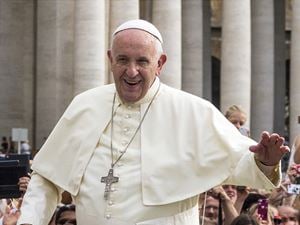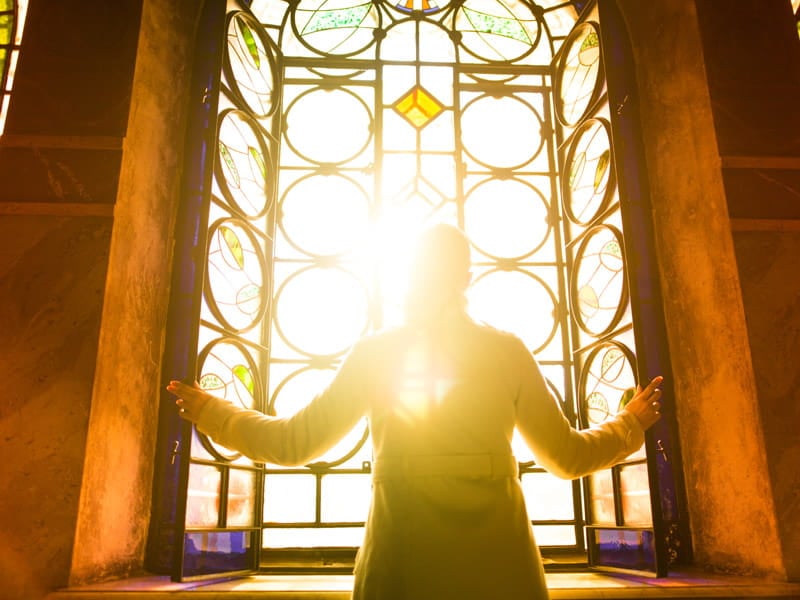
Pope Francis, head of the worldwide Catholic Church, and spiritual leader to over 1.2 billion Christians, has highlighted the fact that many feel that it is better to be an atheist than a hypocritical Christian. But despite recent headlines, the Pope’s message isn’t what it seems.
While delivering a sermon on Vatican Radio on February 23rd, Pope Francis accused Catholics who observe religious ritual, but do not apply scriptural values in everyday life, of the scandal of “saying one thing and doing another”.
Pope Francis went on, saying that “There are those who say, ‘I am very Catholic, I always go to Mass, I belong to this association and that one; but my life is not Christian, I don’t pay my workers a just wage, I exploit people, I am dirty in my business, I launder money’.
And then he comes to the line that has made so many headlines.
“There are many Catholics who are like this and they cause scandal. How many times have we all heard people say ‘if that person is a Catholic, it is better to be an atheist’.”
Several news outlets, including The Guardian, the CNN, and Reuters, have picked up on that last statement, and have run articles with titles like the Washington Post’s “Pope Francis suggests it’s better to be an atheist than a hypocritical Catholic”.
The problem is, though, that these titles are grossly misleading.
Don’t let these headlines fool you—Pope Francis isn’t in the business of uplifting or praising atheism, which he believes to end in spiritual death—as all Christians do. He’s in the business of spiritual guidance in accordance with his Catholic faith.
Let’s take a closer look at the Pope’s statements within the context of the rest of his message.
“How many times have we heard – all of us, around the neighborhood and elsewhere – ‘but to be a Catholic like that, it’s better to be an atheist.’ It is that, scandal. You destroy. You beat down. And this happens every day, it’s enough to see the news on TV, or to read the papers. In the papers there are so many scandals, and there is also the great publicity of the scandals. And with the scandals there is destruction.”
Within Catholic theology, scandal is a sin that “occasions another’s spiritual ruin.” It is a sin that causes more sin. And that is the true crux of Pope Francis’s message—not that it is better to be an atheist than a corrupt Christian, but that corrupt Christians drive people to atheism, and thus to “spiritual ruin”.
The Pope’s statements reveal the true price of Christian hypocrisy—an ineffective ministry, a discredited Catholic Church and a subsequent risk of increased atheism.
A major part of the Catholic Church’s overall mission, according to the catechism, is to “shine out before men in the world”—to bring ideas of what the Church considers Godly and correct ways of living to all. Pope Francis, in his sermon, is simply making the observation that the Church is not effective in propagating this way of life if its members do not live that life out, if they do not show it to be a better way.
Pope Francis has good reason to comment on this—his papacy has been marked by outreach and accessibility from the very beginning. Traditionally, newly elected popes bless the crowd that gathers in St. Peter’s Square to recognize the new pope, but Pope Francis didn’t do this. He broke the formula. Instead, he asked the crowd to pray for him. And once he took office, rather than living in the lavish papal apartments, above the people he swore to spiritually shepherd, he chose to reside in his Vatican hotel suite.
Pope Francis is not a man of ritual and ornament. He knows the ends that these empty practices bring. He is, rather, a man of empathy and action and consistency. And he cares deeply about the spiritual welfare of the world around him.
In the Catholic view, those who do not accept Christ as their personal savior, and thus, have not attained salvation, cannot enter heaven and go to be with God upon death. This, in theological terms, is the ultimate bad end, the worst thing that could possibly happen to a person.
When Pope Francis warns against scandal—against sins that drive others away from God—he has this in mind. Pope Francis care deeply for the world—for the saved and the unsaved—and in his statements, he shows this by condemning the hypocrisy that is driving the masses away from Christianity and away from the arms of God.
This is a far cry from the aforementioned “Pope Francis suggests it’s better to be an atheist than a hypocritical Catholic”. The existence of such headlines is a testament to Pope Francis’s words—so many are so eager to see the Catholic Church capitulate and admit the superiority of non-faith that articles like this are simply accepted. And why is the public eager for the Church’s capitulation? Because they have tired of its hypocrisy, of child sex abuse scandals, of organized crime, of financial corruption and abuses of power.
The public is tired of all of this, and rightly so—these things are evil, and they are hurtful. And so the Pope’s message is timely, and his call to end hypocrisy, relevant. If his past actions are any indication of his future, Pope Francis is going to pursue this particular scandal with dogged determination through his writing, his speech, and his leadership.
And he’ll do this not because he thinks the Catholic Church deserves respect or awe or more tithe money. He’ll do this because he’s afraid for the souls of the billions of non-Christians who closely watch the Catholic Church, making their decisions based on how the Church conducts itself. He wants the Church he leads to shine out to the world, to be a beacon of what is good and holy and beautiful about the faith and the God he holds so dear.

